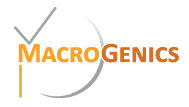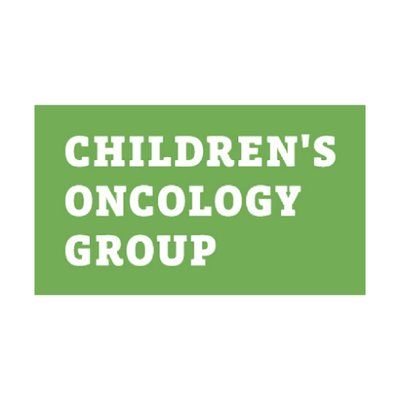Request Demo
Last update 08 May 2025
Refractory Malignant Solid Neoplasm
Last update 08 May 2025
Basic Info
Synonyms Refractory Malignant Solid Neoplasm, Refractory Malignant Solid Tumor |
Introduction A malignant solid neoplasm that does not respond to treatment. |
Related
108
Drugs associated with Refractory Malignant Solid NeoplasmTarget |
Mechanism MEK1 inhibitors [+1] |
Active Org. |
Originator Org. |
Active Indication |
Inactive Indication |
Drug Highest PhaseApproved |
First Approval Ctry. / Loc. United States |
First Approval Date11 Feb 2025 |
Target |
Mechanism CSF-1R antagonists |
Active Org. |
Originator Org. |
Active Indication |
Inactive Indication |
Drug Highest PhaseApproved |
First Approval Ctry. / Loc. United States |
First Approval Date14 Aug 2024 |
Target |
Mechanism PD-1 inhibitors |
Active Org. |
Originator Org. |
Active Indication |
Inactive Indication |
Drug Highest PhaseApproved |
First Approval Ctry. / Loc. United States |
First Approval Date22 Mar 2023 |
244
Clinical Trials associated with Refractory Malignant Solid NeoplasmNCT06173219
A Prospective Clinical Trial Evaluating the Safety and Efficacy of Radiotherapy Combined with Immunotherapy in Advanced Refractory Solid Malignancies After Standard Treatment Failure/drug Resistance.
The goal of this clinical trial is to find a new radioimmunotherapy regimen for advanced malignancies with multiple metastatic after standard treatment failure/drug resistance. The main questions it aims to answer is: the safety and efficacy of the new regimen for advanced multiple metastatic solid tumors standard treatment failure/drug resistance, and explore the impact on immune function. Participants will receive the combination of radiotherapy and immunotherapy.
Start Date01 Aug 2025 |
Sponsor / Collaborator |
NCT06620302
DT2216 in Combination With Irinotecan for Children, Adolescents and Young Adults With Relapsed or Refractory Solid Tumors: A Phase I Study With Phase II Feasibility Cohort for Fibrolamellar Carcinoma
This phase I/II trial tests the safety, side effects and best dose of DT2216 in combination with irinotecan and how well it works in treating children, adolescents and young adults with solid tumors and fibrolamellar cancer that has come back after a period of improvement (relapsed) or that has not responded to previous treatment (refractory). DT2216 is an anti-apoptotic protein B-cell lymphoma-extra large targeted protein degrader. It may stop the growth of tumor cells by blocking BCL-XL, a protein needed for tumor cell survival. Irinotecan is in a class of antineoplastic medications called topoisomerase I inhibitors. It blocks a certain enzyme needed for cell division and deoxyribonucleic acid (DNA) repair and may kill tumor cells. Giving DT2216 in combination with irinotecan may be safe, tolerable, and/or effective in treating children, adolescents and young adults with relapsed or refractory solid tumors or fibrolamellar cancer.
Start Date20 Jun 2025 |
Sponsor / Collaborator |
NCT06911008
Phase I Trial of SCD I: A First in Human Dose Regimen-Finding Study to Evaluate the Safety, Tolerability, Pharmacokinetics, and Activity of MTI-301 in Patients With Advanced Malignancy
This phase I trial tests the safety, side effects, and best dose of MTI-301 in treating patients with solid cancers that have spread from where they first started (primary site) to other places in the body (metastatic) or that cannot be removed by surgery (unresectable) and that have not responded to previous treatment (refractory). MTI-301 is a drug that inhibits an enzyme called SCD1. SCD1 is an enzyme that promotes tumor growth and spread and is upregulated in some cancer types. MTI-301 may disrupt the activity of SCD1, which may lead to reduced tumor growth and/or spread.
Start Date09 Jun 2025 |
Sponsor / Collaborator  Mayo Clinic Mayo Clinic [+1] |
100 Clinical Results associated with Refractory Malignant Solid Neoplasm
Login to view more data
100 Translational Medicine associated with Refractory Malignant Solid Neoplasm
Login to view more data
0 Patents (Medical) associated with Refractory Malignant Solid Neoplasm
Login to view more data
193
Literatures (Medical) associated with Refractory Malignant Solid Neoplasm01 Mar 2025·JCO Precision Oncology
Comprehensive Molecular and Genomic Analysis of NCI-MATCH Subprotocol Y: Capivasertib in Patients With an
AKT1 E17K
–Mutated Tumor
Article
Author: Gross, Jacob ; Bu, Xiangning ; Wang, Victoria ; McShane, Lisa M. ; Harris, Lyndsay N. ; Maican, Cayden ; McCourt, Carolyn K. ; Guan, Ping ; Lahey, Matthew T. ; O'Dwyer, Peter J. ; Patton, David ; Kalinsky, Kevin
01 Dec 2024·JCO Precision Oncology
Phase II Study of Sunitinib in Tumors With
c-KIT
Mutations: Results From the NCI MATCH ECOG-ACRIN Trial (EAY131) Subprotocol V
Article
Author: Zwiebel, James A. ; Arteaga, Carlos L. ; Williams, P. Mickey ; Conley, Barbara A. ; Poklepovic, Andrew ; Rubinstein, Larry V. ; Chen, Alice P. ; Tricoli, James V. ; Hamilton, Stanley R. ; Patton, David R. ; Song, Zihe ; Gray, Robert J. ; Gien, Lilian T. ; McShane, Lisa M. ; Wang, Victoria ; Collisson, Eric A. ; Harris, Lyndsay N. ; Flaherty, Keith T. ; O'Dwyer, Peter J.
01 Sep 2024·WMJ : official publication of the State Medical Society of Wisconsin
STRN-ALK Fusion in Advanced Salivary Gland Carcinoma With Response to Anaplastic Lymphoma Kinase Inhibition: Case Report and Literature Review.
Review
Author: Kaur, Varinder ; Zadeh, Sara
60
News (Medical) associated with Refractory Malignant Solid Neoplasm20 Mar 2025
The alliance combines the strengths of OBT’s platform with Roche’s expertise in drug development. Credit: PowerUp/Shutterstock.
Oxford BioTherapeutics (OBT) has entered a multi-year partnership with Roche to discover antibody-based therapeutics for cancer treatment.
The partnership will leverage OBT’s OGAP-Verify discovery platform, which claims to offer greater sensitivity and enables target selection with enhanced drug development attributes.
OBT will identify targets using its platform, which will then be validated via joint research efforts.
Roche will lead subsequent research, development and commercialisation activities for these targets. It will pay OBT up to $36m upfront.
OBT could also earn more than $1bn in milestone payments, in addition to royalties on net product sales.
The alliance combines the strengths of OBT’s discovery platform with Roche’s expertise in drug development, aiming to progress several oncology targets.
Roche corporate business development head Boris Zaïtra stated: “We are excited to enter this strategic collaboration with OBT. By combining Roche’s expertise in discovering and developing transformative therapeutics with OBT’s innovative target discovery platform, we aim to unlock new possibilities in cancer treatment.
“This partnership underscores our commitment to advancing potentially first-in-class antibody-based therapeutics. Together, we aim to accelerate the development of innovative therapies that address major unmet patient needs in oncology.”
OBT, as a clinical-stage oncology company, focuses on developing antibody-based therapies to address unmet needs in cancer treatment.
Its portfolio includes bispecific antibodies and antibody-drug conjugates.
OBT076, the company’s lead clinical programme, commenced expansion in a US clinical trial in2021, which included subjects with advanced or refractory solid tumours, such as lung, bladder, ovarian and gastric cancers.
Its pipeline and development offerings have been previously validated via collaborations with Abbvie’s ImmunoGen, Zymeworks and Boehringer Ingelheim, among others.
License out/in
19 Mar 2025
Collaboration leverages OBT’s proprietary OGAP®-Verify discovery platform and Roche’s drug development expertise to advance multiple selected novel oncology targetsOBT to receive up to US$36 million upfront payments and may be eligible to receive milestone payments potentially exceeding US$1 billion, as well as royalties Oxford, UK and San Jose, California, 19th March 2025 – Oxford BioTherapeutics (OBT), a clinical stage oncology company with a pipeline of immuno-oncology (IO) and Antibody Drug Conjugate (ADC)-based therapies, today announced a multi-year collaboration with Roche to discover novel potentially first-in-class antibody-based therapeutics for the treatment of cancer. OBT’s recently launched enhanced proprietary OGAP®-Verify discovery platform enables greater sensitivity and thereby the selection of targets with improved attributes for drug development. Under the terms of the agreement, targets are identified via the OGAP®-Verify discovery platform and will be validated through the research collaboration. Any further research, development and commercialization efforts against these targets will be driven by Roche. OBT will receive up to US$36 million upfront payments from Roche and may be eligible to receive milestone payments potentially exceeding US$1 billion, plus product royalties on net sales. “We are proud to partner with Roche, a global leader in oncology, to accelerate the application of novel cancer targets identified through our proprietary discovery platform, OGAP-Verify,” said Christian Rohlff, PhD, Chief Executive Officer (CEO) of Oxford BioTherapeutics. “This collaboration builds on our efforts to enhance, validate and advance the discovery of oncology targets, and we look forward to leveraging Roche’s deep expertise to translate these insights into potential new treatments for patients. Our discovery philosophy is very patient centric and Roche’s strength to integrate pharma and diagnostics is unique in the industry.” “We are excited to enter into this strategic collaboration with OBT. By combining Roche’s expertise in discovering and developing transformative therapeutics with OBT’s innovative target discovery platform, we aim to unlock new possibilities in cancer treatment”, said Boris L. Zaïtra, Head of Corporate Business Development at Roche. “This partnership underscores our commitment to advancing potentially first-in-class antibody-based therapeutics. Together, we aim to accelerate the development of innovative therapies that address major unmet patient needs in oncology.” About Oxford BioTherapeutics Oxford BioTherapeutics is a clinical stage oncology company discovering and developing first in class antibody-based therapies designed to fulfil major unmet patient needs in cancer therapy. These include Bispecific Antibodies and Antibody Drug Conjugate (ADC) therapeutics. OBT is dedicated to discovering and validating the next generation of ADC targets for safe and effective medicines. The OGAP-Verify platform’s enhanced sensitivity, specificity, and reliability will significantly accelerate biopharma’s capabilities to identify and validate human targets with robust scientific support. Our commitment to leveraging OGAP capabilities underscores our dedication to advancing the forefront of cancer therapy development, with three programs originating from this technology now in clinical development in the US and Europe. OBTs IO discovery process provides unique insights into the cancer-immune cell synapse and has identified several novel IO monoclonal and bispecific antibody candidates for cancer therapies. OBT's lead clinical program, OBT076, initiated expansion in a US Clinical Trial in 2021 in patients with advanced or refractory solid tumors, including gastric, bladder, ovarian and lung cancer, where CD205 is overexpressed. Infiltration of tumors by immunosuppressive cells correlates with adverse outcomes (lower progression free and overall survival), suggesting that this process contributes to the progression of several cancers. OBT’s pipeline and development capabilities have been validated through multiple strategic partnerships including with Boehringer Ingelheim, ImmunoGen (now part of Abbvie) and Zymeworks as well as other world leaders in antibody development (such as Amgen, WuXi, Medarex (BMS) and Alere (Abbott). OBT has a strong oncology focused management team and board with significant experience in developing IO and antibody-based therapies. For more information on Oxford BioTherapeutics, please visit www.oxfordbiotherapeutics.com and follow us on LinkedIn. Partnering:Dr Christian Rohlff, CEOPartnering@oxfordbiotherapeutics.com Media:MEDiSTRAVA Sylvie Berrebi, Sandi Greenwood, Erica HollingsworthE : OBT@medistrava.comT : +44 (0)203 928 6900
License out/inADC
13 Mar 2025
The company is preparing to progress the drug into a registrational Phase III trial for subjects with mesothelioma. Credit: PowerUp/Shutterstock.
Vivace Therapeutics has closed $35m in a Series D financing round to support the clinical development of its cancer drug VT3989.
VT3989 is a transcriptional enhanced associate domain (TEAD) autopalmitoylation inhibitor that blocks the palmitoylation of TEAD protein family members to target the Hippo pathway.
RA Capital Management spearheaded the financing round which also saw contributions from current investors Cenova Capital and Canaan Partners.
The investment will primarily facilitate the therapy’s development, with a focus on treating mesothelioma.
The small-molecule cancer drug has already been assessed in 150 subjects in an ongoing open-label Phase I study.
The multicentre trial aims to assess the drug’s biological activity, tolerability, pharmacokinetics and safety in subjects with refractory metastatic solid tumours, including refractory pleural malignant mesothelioma.
Clinical findings for the drug have been promising for individuals with mesothelioma who have not responded to chemotherapy and immuno-oncology combo regimens.
The company is preparing to progress the drug into a registrational Phase III trial. It aims to engage with the US Food and Drug Administration (FDA) regarding the discussion of its plans lin the second half of 2025.
The company also announced that RA Capital Management’s partner Jake Simsonto has joined its board of directors.
Vivace Therapeutics CEO and president Sofie Qiao stated: “The results of our clinical evaluation of VT3989 to date give us confidence that the appropriate next step for the programme is advancement into a registrational Phase III trial in patients with mesothelioma.
“We are now laser-focused on executing against this strategy, including completing our ongoing clinical study and meeting with the FDA to align on the next steps.”
Phase 1Phase 2Phase 3
Analysis
Perform a panoramic analysis of this field.
login
or

AI Agents Built for Biopharma Breakthroughs
Accelerate discovery. Empower decisions. Transform outcomes.
Get started for free today!
Accelerate Strategic R&D decision making with Synapse, PatSnap’s AI-powered Connected Innovation Intelligence Platform Built for Life Sciences Professionals.
Start your data trial now!
Synapse data is also accessible to external entities via APIs or data packages. Empower better decisions with the latest in pharmaceutical intelligence.
Bio
Bio Sequences Search & Analysis
Sign up for free
Chemical
Chemical Structures Search & Analysis
Sign up for free





